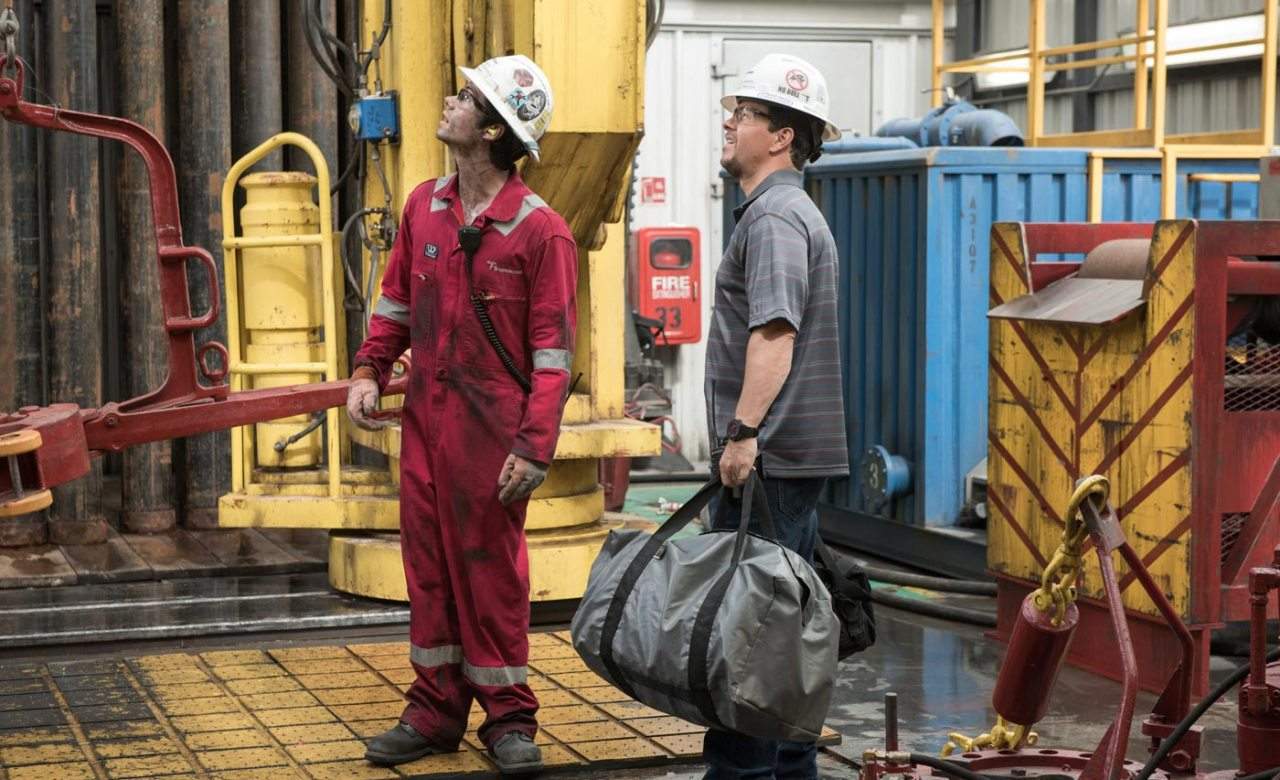Deepwater Horizon
A gripping tribute to the men who died during the Deepwater Horizon disaster.
Overview
When you consider the conventional response to the Deepwater Horizon disaster, one of impassioned environmental outrage, you almost feel like director Peter Berg accepted his latest film as a dare. "Hey Pete, here's one for ya. You know that Deepwater thing that happened back in 2010? Worst oil disaster in US history? 4.9 million barrels of oil spilled into the Gulf of Mexico? 11 workers missing and never found. Millions upon millions of marine animals wiped out and a $100 billion company doing everything it could to avoid liability? Yeah, well…make that an uplifting story".
Impressively – and to Berg's definite credit – he's done a more than solid job of it. Deepwater Horizon does indeed find its heart by telling the story of the 'roughnecks' who kept the rig running right until it didn't: the engineers, the riggers, the crane operators and the cleaners. BP executives feature too, but you'd better believe they're the bad guys, especially in the eyes of the Deepwater team. Penny-pinching and regulation-bending, the BP/Transocean head honchos (led by John Malkovich) come across like comic book villains, delivering silver-tongued insults and making unyielding demands of their subordinates through toothy, moustachioed grins and deep-south Louisiana drawls. If Deepwater Horizon were a cartoon, Foghorn Leghorn would be the first one cast ("I say, I say, I say, I do protest sir that this here rig be nigh on 43 days past delivery date, yiiiih-ha!!")
Squaring up against the suits is a solid ensemble cast of hard-arses and hillbillies from the Transocean team responsible for keeping the Deepwater rig afloat. At the helm, Mark Wahlberg plays Mike Williams, a straight-talking electronics technician, husband (to Kate Hudson) and father who tells his buddies how to fix their cars and his superiors how to fix their floating oil station. Alongside his boss Mr Jimmy (Kurt Russell), Williams has no difficulty in seeing that BP's determination to complete the drilling project and advance to the next site as quickly as possible puts at risk not just the oil reserve but all the crew members responsible for drilling it. Greed and gross negligence, in the film's frustratingly simplistic estimation, explain what happened next.
We say frustrating, because in Deepwater Horizon there existed an opportunity to delve deep into the specifics of what precipitated the massive blow-out and subsequent explosion on that fateful evening. Sadly the script, based on the New York Times article "Deepwater Horizon's Final Hours", rarely advances beyond repeated mentions of a 'cement bond log test' not being performed. Berg's focus is clear from the beginning: this is a human story centred on a very specific couple of hours from within a much larger tale.
But whatever the movie lacks in narrative depth, it does its best to make up for in action. As with any real-world disaster movie, the inevitable cataclysmic conclusion endows it with an inherent suspense. Berg's job is to simply build the pressure until its explosive release can be held no longer – and he's happy to take his time. As in Clint Eastwood's recently released Sully, the film's patience in delivering the heart-thumping disaster moment means its eventual arrival is almost overwhelming, aptly showcasing the horrors endured by those on board, and the heroism of the few whose actions saw so many others survive.
An intense and gripping piece of cinema, Deepwater Horizon ultimately resonates more than one might have expected for a film of this type and subject matter, offering at once an earnest tribute to the men who lost their lives and a solid rebuke to those who were responsible.





